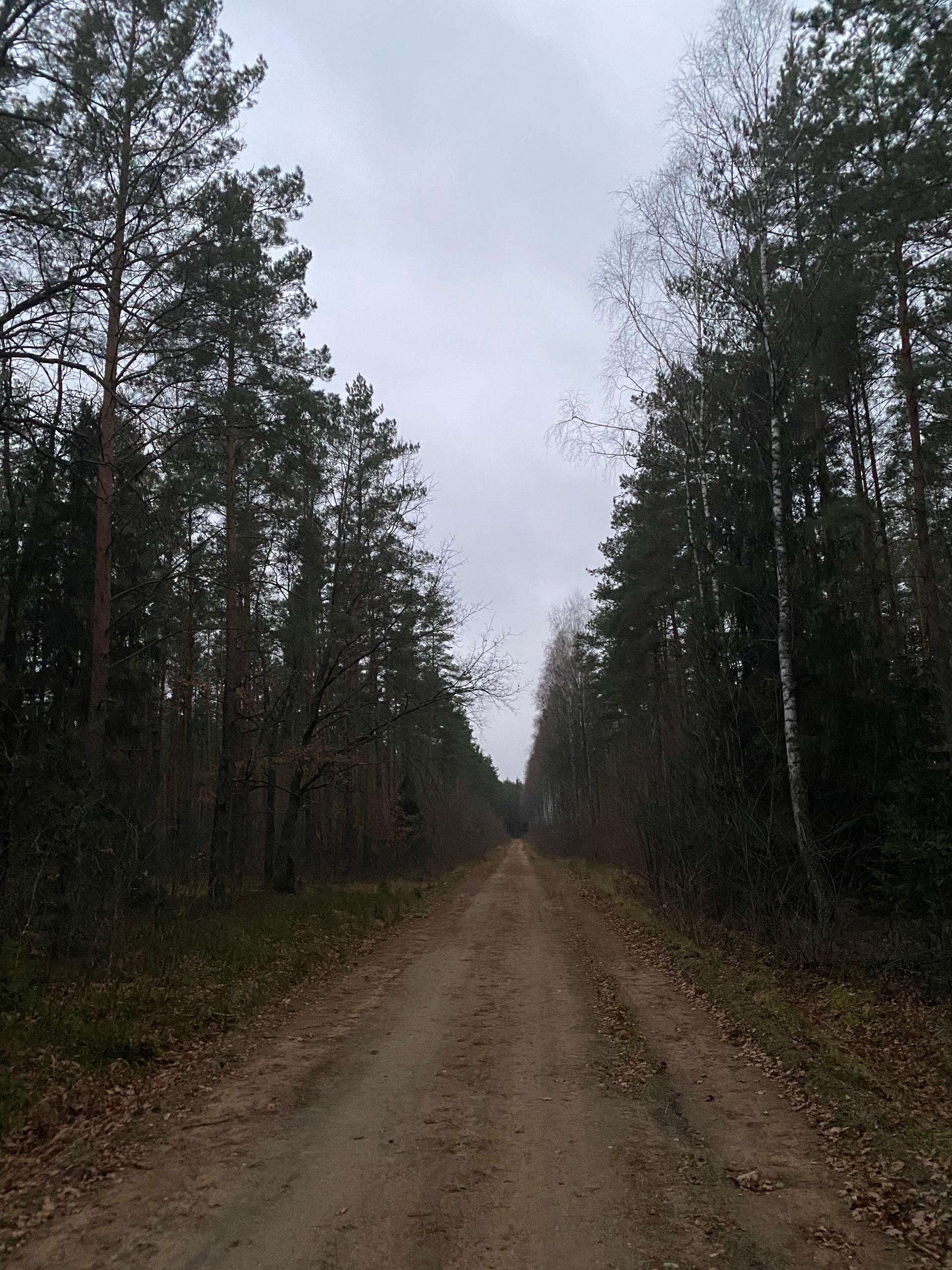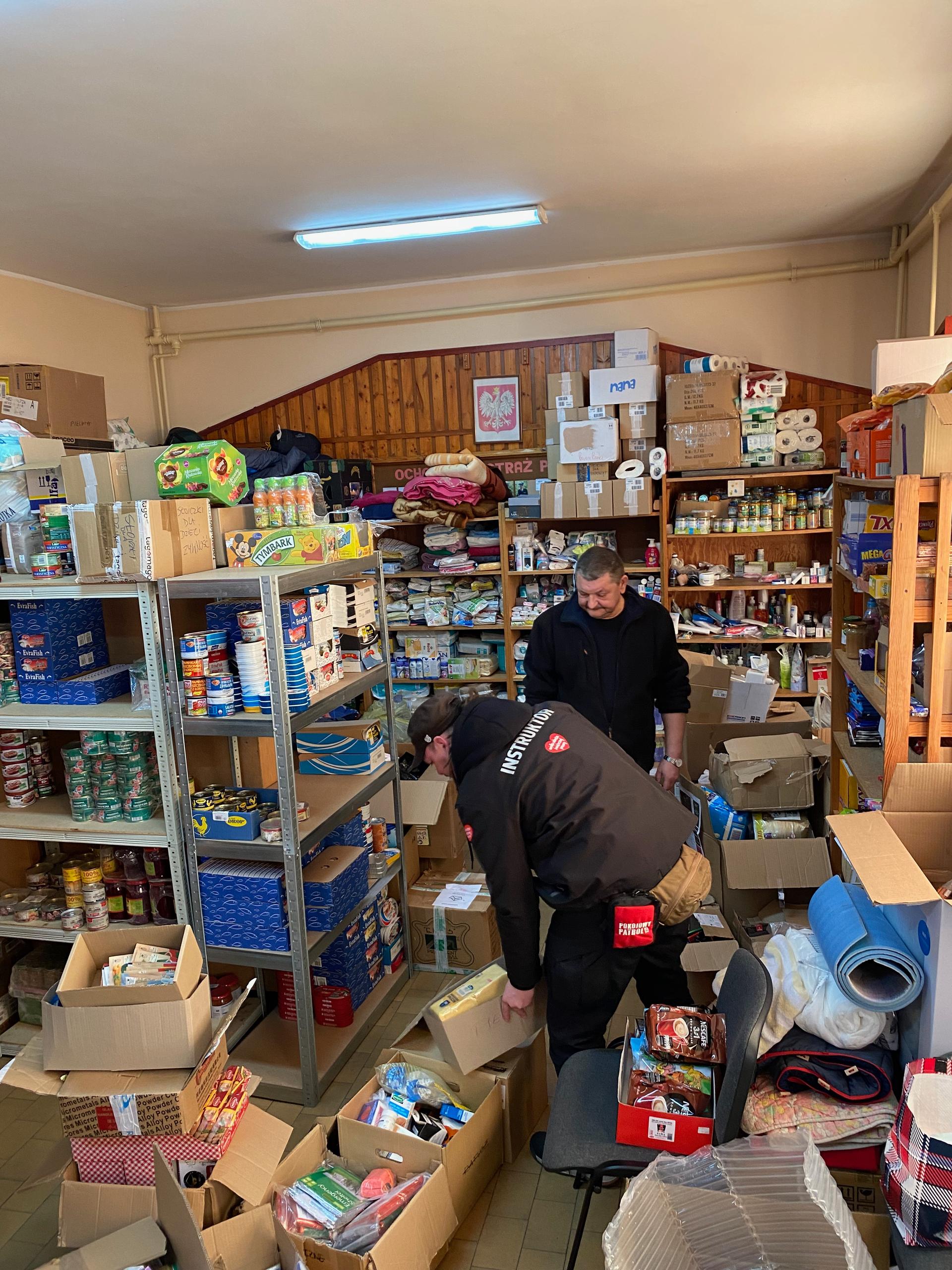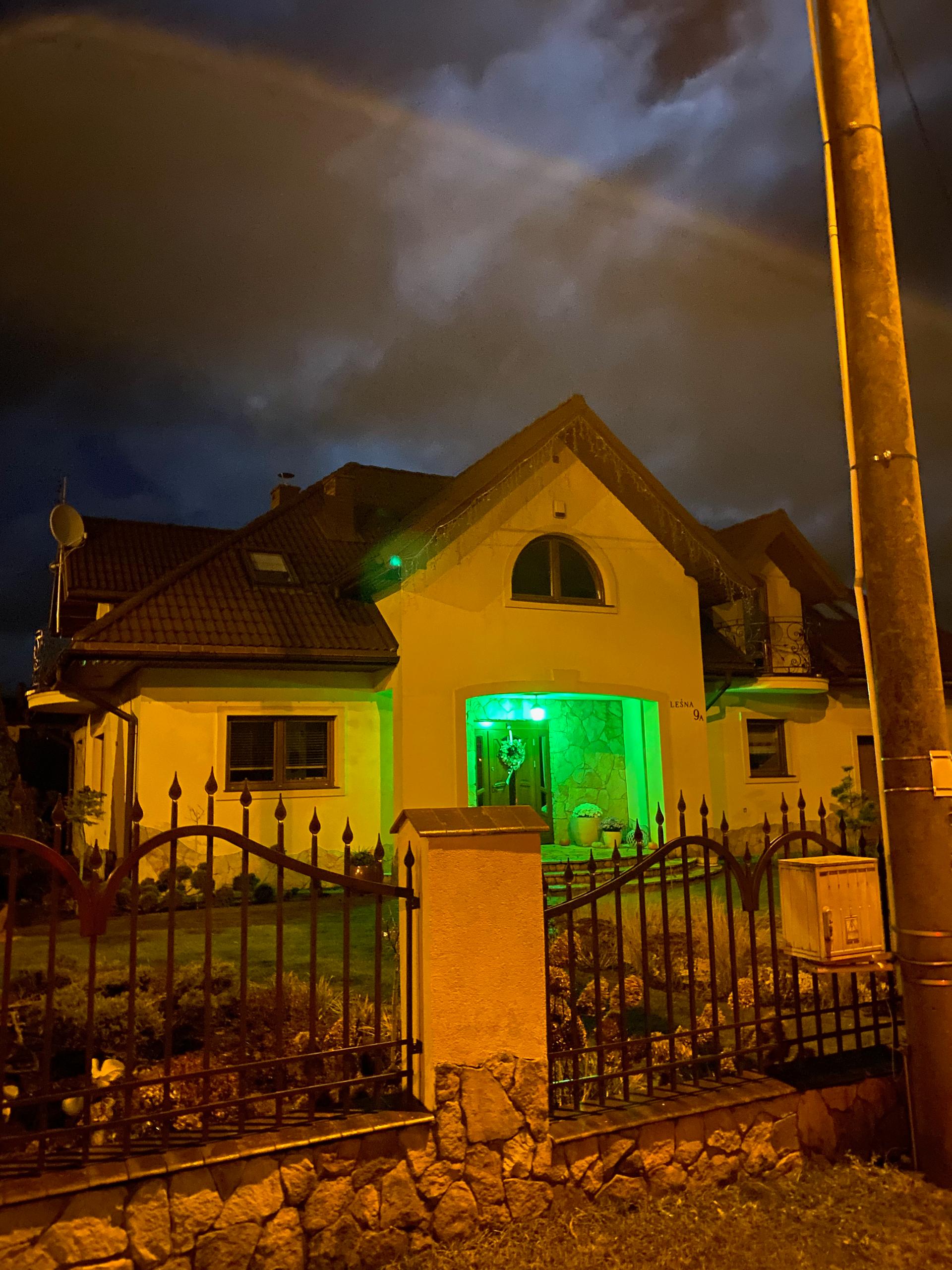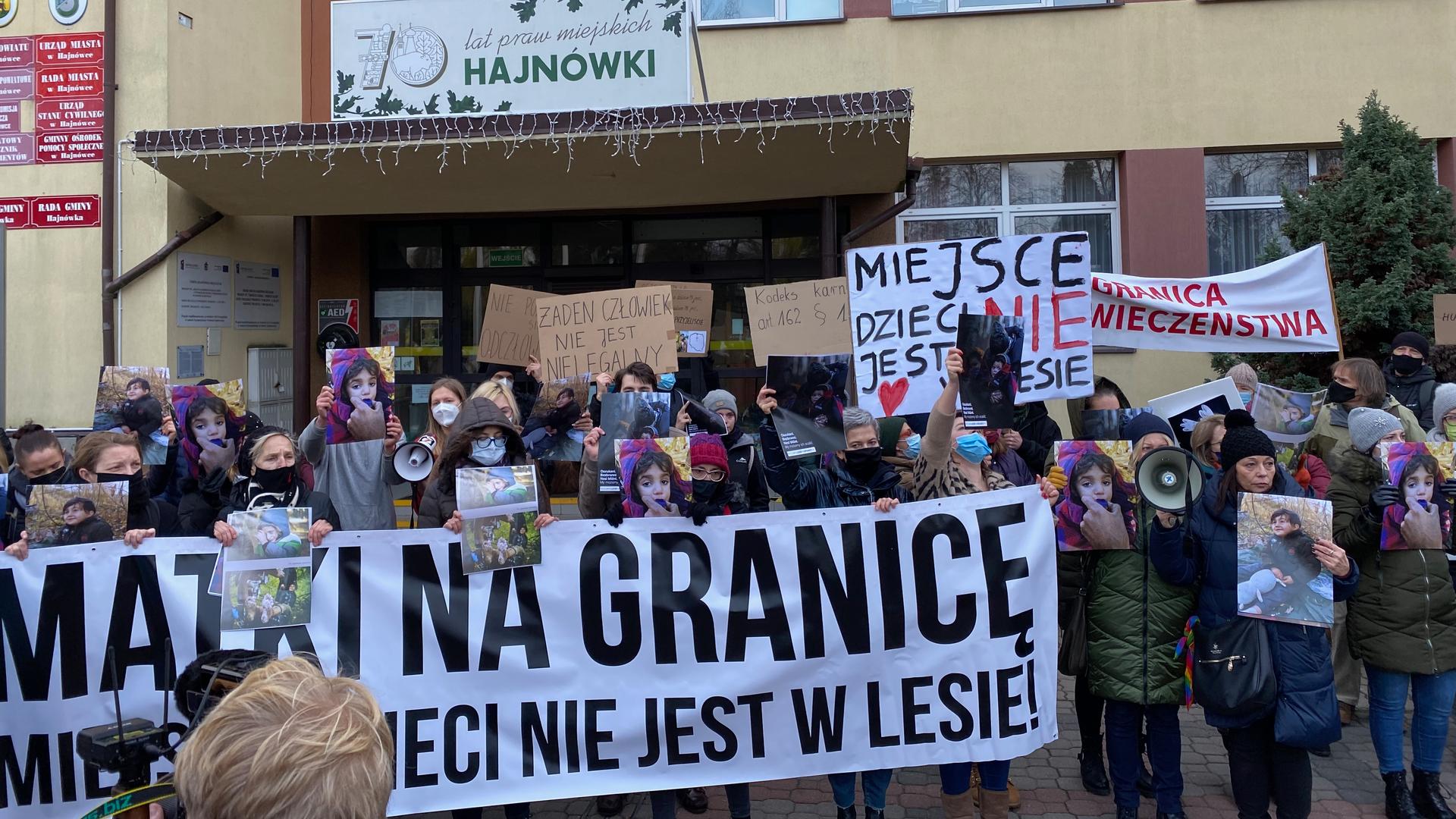For months, the government of Belarus has been accused of directing thousands of asylum-seekers to the border with Poland.
In response, the Polish authorities have sent thousands of troops to the border and amended legislation in October allowing them to “push back” migrants they catch. Most of the migrants come from Syria and Iraq.
“The Polish border is sealed. The Belarusian authorities told you lies. Go back to Minsk!”
So reads the English-language text message sent by the Polish government to all foreign-registered phones, as soon as people approach the country’s eastern border with Belarus.
But an underground network of local people is self-organizing to help desperate people stranded in the vast Bialowieza Forest in Poland — the last remaining section of a gigantic primeval forest that used to stretch across the continent — and avoid these pushbacks by authorities. Humanitarian groups and media have been banned from entering the area.

The fire station in the eastern town of Michalowo, Poland, has become a distribution point for donations for asylum-seekers making the treacherous journey through the forests. Shelves are piled high with food, clothes, diapers, medicine and toys. The volunteer firefighters hand out supplies to migrants they meet when on patrol.
Krzysiek, a firefighter in his 50s, stood over a mountain of bottled water in the center of the fire station.
“We don’t have a choice. We are on the front line. We have the space, we have the capacity, we’re not so old yet, so we still have the energy. And these people are in a bad situation.”
“We don’t have a choice,” Krzysiek said. “We are on the front line. We have the space, we have the capacity, we’re not so old yet, so we still have the energy. And these people are in a bad situation.”
At least 10 migrants have been found dead on the Belarusian border. Most recently, the youngest victim was a 1-year-old child from Syria.
Other community members are also getting involved.
Related: Afghan migrants remain stranded at Poland-Belarus border as leaders punt responsibility
Last weekend, a small demonstration by mothers in support of migrants was held in the nearby town of Hajnówka. They chanted, “The forest is not the place for children.”
Among them was high school teacher Kasia Wappa, who stood next to a box of portable phone chargers.
“We had a case a week ago where a man had no phone, because it was stolen from him, and he was dying by the road,” Wappa said. “Nobody even knew he was there, and he would have been another nameless victim of the border if it had not been for my friends who just picked him up from the grass.”
Rather than large aid agencies, who are banned from the forest, the humanitarian effort on the Belarusian border is largely led by ordinary Poles.
“Not long ago, we just [lived] our normal average lives,” Wappa said. “We were not activists, we were not nurses, we were not lawyers, we were not psychologists; and suddenly, we are all these things in one when we go to the forest.”
Oliwer Kruczek and two friends stood out with their bright orange paramedic uniforms. In the evening, they planned to join a patrol to give support to migrants in the forest.
“We wanted to join because we see the violation of the Geneva Convention, which all citizens of Poland should respect,” said Kruczek, who normally works in a barbershop. “I’m not saying we should accept everyone, but we have to do something to help; there are children in the forest.”
Related: Activists: Belarus Olympian plans to seek asylum in Poland
The Polish government has demarcated a 2-mile-wide area that runs parallel to the 250-milelong border of Belarus, where nobody — including journalists, doctors and activists — is allowed to enter, apart from residents.

One woman, who preferred not to use her name for security reasons, lives in this area that has become known as “the zone,” where migrants are bound to pass through.
“Before this started, this area was really just known for the nature, beautiful forests, the national park, the bison and the deer and wild animals. Now, we have soldiers everywhere, and helicopters flying over our house.”
“Before this started, this area was really just known for the nature, beautiful forests, the national park, the bison and the deer and wild animals. Now, we have soldiers everywhere, and helicopters flying over our house,” she said.
One night, when she and her father were helping a group of migrants in the forest, a less-sympathetic neighbor called the border guards to take them away.
“They just packed all of them on a big military truck. There were kids there, two little girls. One was maybe 3, the other one 5 or 6. They were sisters. And they were instantly just taken back to the forest with their entire family,” she said. “It was horrible. It was heartbreaking. I was just standing there crying.”
For her, this ancient forest, the oldest in Europe, will never be the same again.
“I can’t walk in the forest without looking for people anymore,” she said. “I always just look around because there might be people hiding there, who need help. I don’t leave my house without a couple of packages of food, water, socks, those necessary things for them to survive.”
In the village of Werestok, Kamil Syller’s house looks out on a big stretch of open field in front of the forest where bison occasionally roam. Months ago, Syller, a local lawyer, started to light a green lantern outside his home to signal that migrants could find help there. And, he keeps a pair of binoculars handy.

“Red is not a good choice. Blue is police. And yellow is just a normal light. So, it was a kind of process of elimination,” he said.
But recently, Syller has had second thoughts about his beacon.
“Yesterday, I saw the border guards’ car lurking outside the village. They probably were hunting migrants who see this light. Maybe it became a trap.”
The forest is disorientating even in the daytime. At one spot a few miles away from Syller’s house, in a small clearing, clothes discarded by migrants lie strewn under the trees along with Belarusian candy wrappers and documents written in Arabic.
Syller, who was monitoring their situation, said that the owners of these clothes were pushed back over the border.
“Our aid network exists because of the illegality of our authorities. We would help the border guards and police happily if they didn’t push people back to Belarus.”
He, too, can never look at the forest in the same way again.
“Our forest was the place we can rest, and now it’s a potential cemetery and a place of stress,” Syller said. “We have no place to escape, physically or mentally. We know somewhere in the woods, there are people.”
